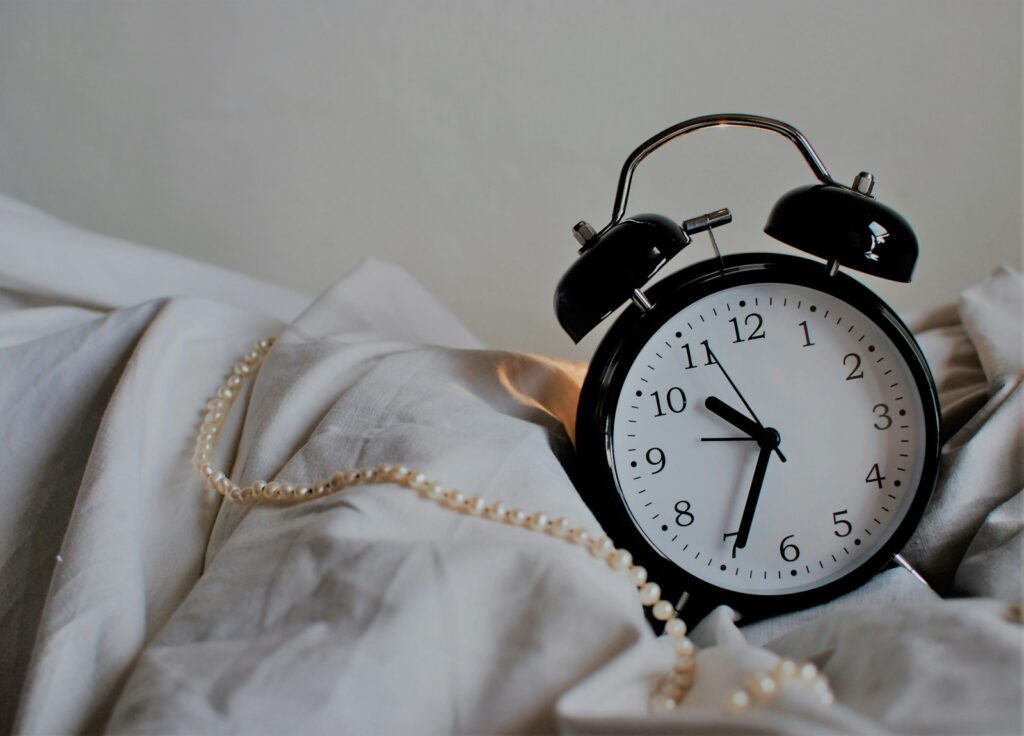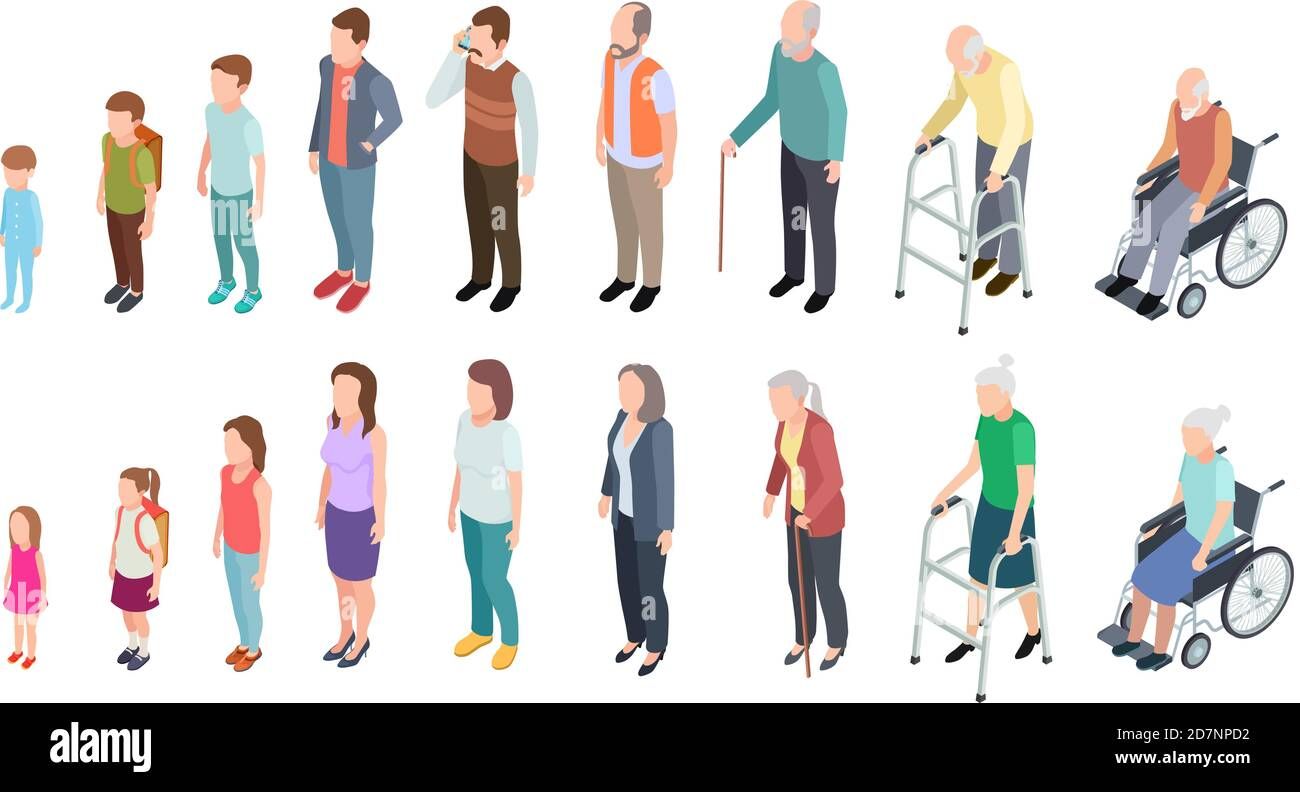If you often find yourself crawling into bed after an incredibly long, taxing day, only to toss and turn until the wee hours, you are certainly not navigating this frustrating experience alone. In a world that constantly demands our attention and energy, achieving restorative sleep often feels like an elusive luxury rather than a nightly necessity.
A comprehensive survey by SleepScore Labs, analyzing two million nights of data from over 25,000 people, starkly revealed that a staggering 75 percent of individuals are consistently getting less than seven hours of sleep per night. What’s more concerning is that half of these participants reported regularly using two or more sleep aids, ranging from over-the-counter pills to herbal supplements, just to try and catch some Zs. While these might offer temporary relief, they often come with unwanted baggage, like that groggy, dragged-out feeling the next day.
The exciting news is that reclaiming your nights and achieving truly restful sleep doesn’t have to involve a pharmacy run. There are numerous natural, expert-backed strategies you can integrate into your daily life to significantly improve your sleep quality. These aren’t quick fixes, but rather sustainable habits designed to empower your body’s natural sleep mechanisms. That said, if you’re battling chronic insomnia and these remedies aren’t hitting the mark, always consult your doctor for long-term solutions, as advised by Mark Buchfuhrer, MD, medical director of the Comprehensive Sleep Center at Good Samaritan Hospital in Los Angeles. For the rest of us experiencing intermittent sleep woes, these actionable tips are your ticket to finally getting the deep, rejuvenating sleep you deserve.
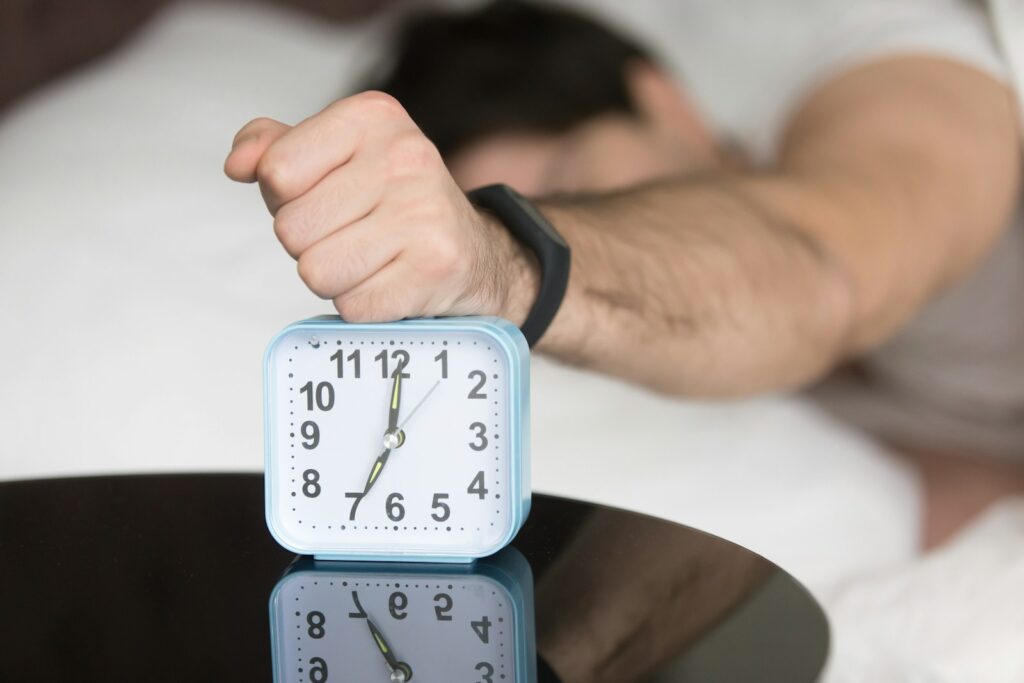
1. **Stick to a Consistent Sleep Schedule**When it comes to mastering the art of sleeping well, consistency is truly the unsung hero. Your body thrives on predictability, especially when it comes to rest. Going to bed and waking up at the exact same time every single day, even on weekends, is a powerful way to reinforce your body’s natural internal biological clock. This rhythm, also known as your circadian rhythm, dictates when you naturally feel sleepy and when you’re alert, and keeping it steady helps you fall asleep and wake up with greater ease.
Think of it as training your brain to anticipate sleep. When you adhere to a regular schedule, your body learns to release sleep-inducing hormones at the right time, making the transition to slumber much smoother. This discipline might sound challenging at first, particularly on those tempting weekend mornings, but the payoff in terms of sleep quality is immense. It builds a strong ‘sleep drive,’ which is your biological urge to sleep, by ensuring you’re awake for a consistent duration each day.
Beyond the fixed times, establishing a wind-down routine one to two hours before your desired sleep time is equally crucial. As Chris Jordan, director of exercise physiology at Johnson & Johnson’s Human Performance Institute, suggests, this period is about signaling to your body that it’s time to switch gears. Activities like changing into comfortable pajamas, dimming the lights, engaging in a bit of light reading, or practicing deep breathing exercises can effectively put you in the mood for sleep, gently guiding your mind and body towards restfulness. It’s an intentional decompression that prepares you for a truly restorative night.
Read more about: Unlock Your Best Self: Essential Health and Fitness Pillars for Your 40s
2. **Nix the Screens Before Bed**In our hyper-connected world, the lure of scrolling through social media or catching up on emails right before bed is incredibly strong. You might even convince yourself that it’s a relaxing way to unwind, but in reality, it’s often the complete opposite. The light emitted from these devices, particularly blue light, actively works against your body’s natural sleep cycle.
Richard Blackburn, PhD, a sleep psychologist at Regions Hospital in St. Paul, Minnesota, explains that blue light directly blocks the release of melatonin, which is the crucial hormone that regulates your sleep-wake cycles. This artificial light essentially tricks your brain into thinking it’s still daytime, making it significantly harder to relax and initiate sleep. Furthermore, the emotional stimulation that can arise from checking work emails or engaging with social media can further ramp up your system, making the transition to sleep even more challenging.
While some devices offer a ‘night shift’ mode that reduces blue light, the most effective strategy is to simply put all electronics away at least 30 to 60 minutes before you plan to sleep. This means stepping away from your smartphone, tablet, laptop, and even the television. Use this screen-free time to engage in calming activities, like reading a physical book, listening to quiet music, or simply sitting in gentle conversation. Giving your eyes and brain a break from digital stimulation is a direct pathway to better sleep quality.
Read more about: Ready for a Scream? Dive Into 15 High-Rated Horror Movies That Will Absolutely Chill You to the Bone!
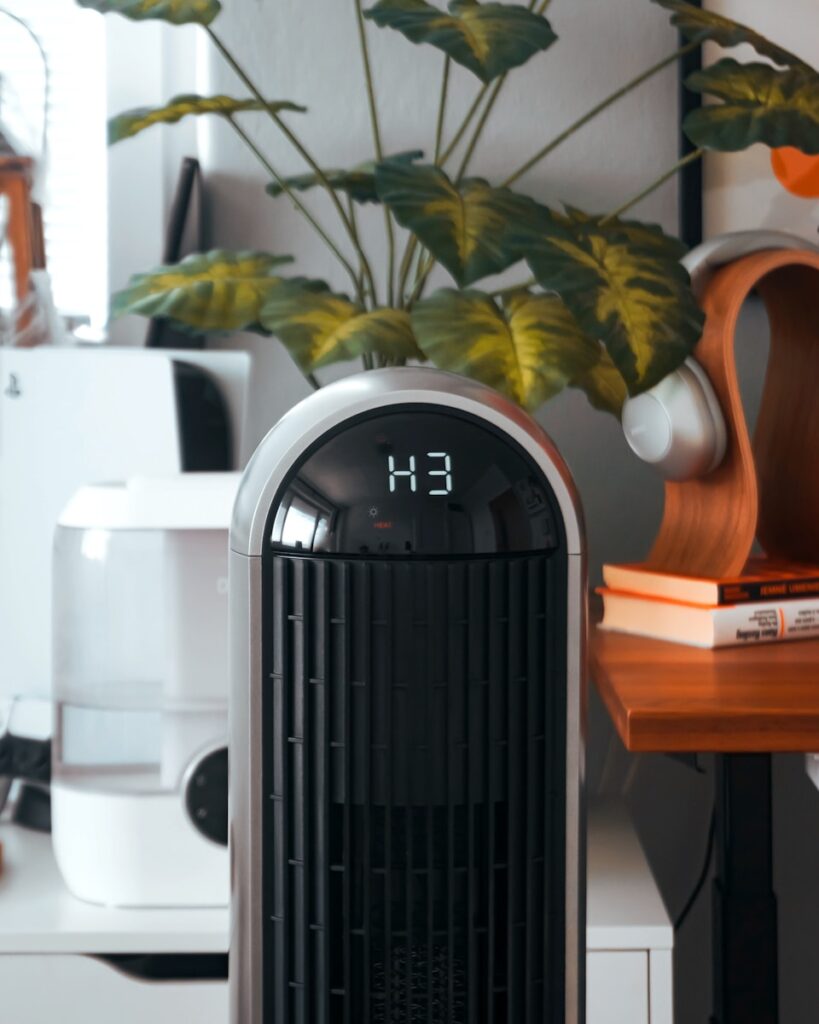
3. **Keep Your Bedroom Cool**Your bedroom’s temperature plays a surprisingly significant role in how well you sleep. As the temperatures outside might fluctuate, it’s vital to maintain a consistently cool environment within your sleep sanctuary. Marc Leavey, MD, a primary care physician with Mercy Medical Center in Baltimore, highlights that “in general, a cooler room is more conducive to sleeping, as the cooler temperature tends to induce sleep.”
The ideal temperature range for promoting sleep is typically between 60 and 67°F (16 to 19°C), as recommended by the National Sleep Foundation. This range allows your body to naturally lower its core temperature, a physiological process essential for initiating and maintaining deep sleep. If you frequently find yourself kicking off blankets in the middle of the night, it’s a clear signal that your room might be too warm, or your bedding is too heavy.
Consider switching out those thick winter duvets and flannel sheets for lighter summer fabrics like cotton or linen. These breathable materials help regulate your body temperature more effectively throughout the night. For women experiencing menopause with hot flashes, keeping the room as cool as possible and opting for cotton or other breathable sleepwear can make a substantial difference in preventing nighttime disturbances and fostering more consistent, comfortable sleep.
Read more about: Celebrity Home Secrets Unlocked: 8 Unexpected Decorating Choices of A-List Stars That’ll Make You Say ‘OMG!’

4. **Get Regular Physical Activity**Incorporating regular physical activity into your daily routine is one of the most powerful natural remedies for improving sleep quality. Hitting the gym or engaging in moderate exercise earlier in the day can make drifting off to sleep later on a whole lot easier. Shanon Makekau, MD, medical director of the Kaiser Permanente sleep lab in Hawaii, explains that “regular exercise in the morning or early afternoon can help augment nighttime sleep quality because physical activity is a stress-releaser and prepares us for a restful night of sleep.”
Exercise serves as an excellent outlet for stress and accumulated tension, helping to quiet a busy mind that might otherwise keep you awake. The benefits are supported by research, with a 2011 study in the journal Mental Health and Physical Activity finding that participants who engaged in 150 hours of moderate to intense exercise reported sleeping better. This isn’t about becoming an elite athlete; even consistent, moderate movement like brisk walking can yield significant improvements.
However, timing is key. While exercise is beneficial, it also releases endorphins, which are chemicals that can keep you feeling energized and alert. It also temporarily raises your core body temperature, signaling to your body that it’s time to be active, not to wind down. Therefore, it’s generally advisable to avoid vigorous workouts within two to three hours of your bedtime. Give your body ample time to cool down and transition from an energized state to a relaxed one, ensuring that your physical activity truly enhances, rather than disrupts, your sleep.
Read more about: Discover Your Happiest Self: Over 24 Transformative Habits and Profound Insights for a Joyful Life

5. **Avoid Caffeine in the Afternoon/Evening**For many of us, that morning cup of coffee is a non-negotiable ritual to kickstart the day. However, participants in the SleepScore Lab survey who consumed four cups of coffee daily slept an average of 26 minutes less than those who drank less, highlighting caffeine’s potent impact. Caffeine is a stimulant, and its primary function is to prevent your body from initiating sleep by blocking sleep-promoting neurotransmitters.
Understanding how caffeine works and how long it stays in your system is crucial for better sleep. Dr. Buchfuhrer advises that you should have your last cup of coffee at least six hours before you plan to go to bed. This allows your body sufficient time to process and eliminate the stimulant, reducing its disruptive effects on your ability to fall asleep. However, some individuals are more sensitive to caffeine and may need an even longer buffer period, or might benefit from avoiding it altogether after midday.
It’s also important to remember that caffeine isn’t just found in coffee. Richard Blackburn points out that many other common items like soda, chocolate, and certain types of tea (such as green tea or Earl Grey) also contain caffeine. Being mindful of these hidden sources throughout your day, especially in the late afternoon and evening, can make a substantial difference in preventing your body from being revved up when it should be preparing for a peaceful night’s rest.
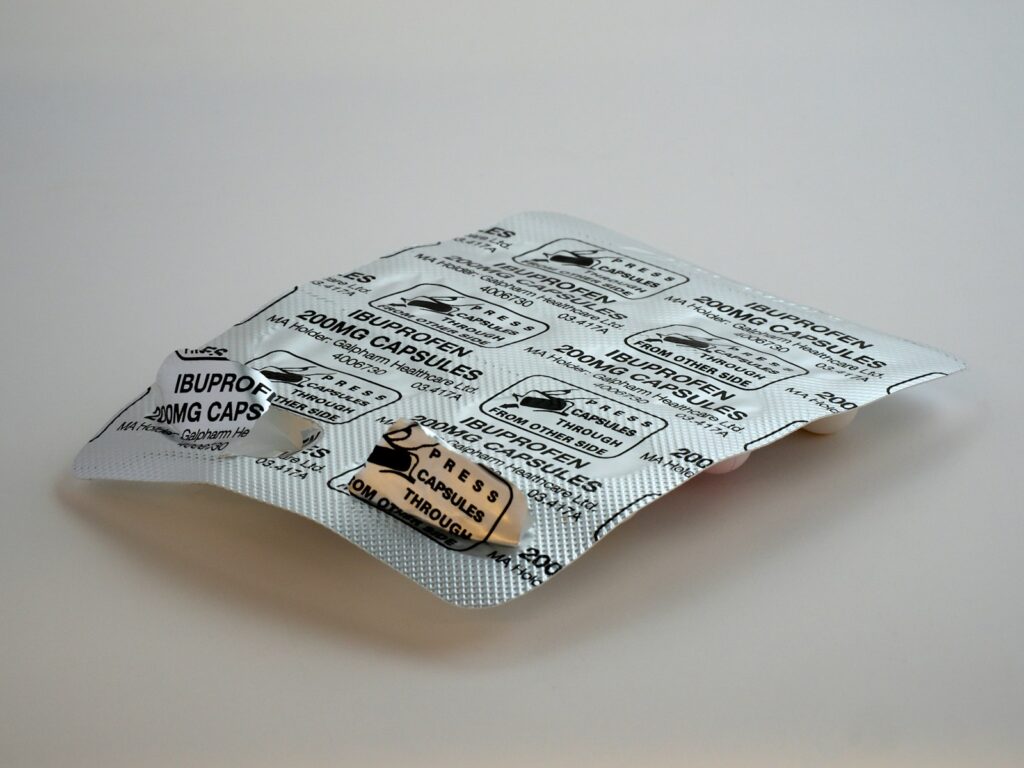
6. **Read Medication Labels Carefully**While the focus here is on non-drug remedies, it’s essential to be aware that some over-the-counter medications can inadvertently sabotage your sleep. If you find yourself battling a cold, allergies, or other minor ailments, reaching for a pill to ease your symptoms might seem harmless, but certain ingredients can have unintended stimulating effects.
Decongestants, commonly found in many cold and flu remedies, are particularly potent in this regard. As Dr. Buchfuhrer cautions, these medications can have a strong stimulating effect on your system. To avoid disrupting your sleep cycle, it’s wise to avoid taking decongestants for up to 12 hours before your planned bedtime. Always make it a habit to carefully read the labels of any over-the-counter medications you take, especially in the evening.
Look for non-drowsy formulas or specific nighttime versions if your symptoms require evening relief. Better yet, consult with a pharmacist or your doctor if you’re unsure how a particular medication might affect your sleep. Being informed about the active ingredients in your medications empowers you to make choices that support, rather than hinder, your pursuit of a good night’s rest, ensuring that you’re not inadvertently introducing stimulants when your body craves calm.
Read more about: Unpacking the ‘Bliss Point’: The Calculated Ingredients That Make Fast Food So Irresistible and Addictive

7. **Skip the Late Night Glass of Wine**It’s a common scenario: after a particularly challenging day, the idea of a relaxing nightcap, a glass of wine or a cocktail, can feel incredibly appealing. Many people believe that alcohol helps them unwind and fall asleep more easily, and to some extent, it can initially appear to do just that. Alcohol is a depressant, meaning it slows down the central nervous system, which can indeed induce a feeling of drowsiness.
However, this initial soporific effect is often fleeting and comes with a significant cost to the overall quality of your sleep. Morton Tavel, MD, clinical professor emeritus of medicine at Indiana University School of Medicine, clearly states that while “a nightcap may help some people fall asleep… this effect disappears after a few hours and may lead to waking up throughout the night.” The initial sedative effect wears off, and as your body processes the alcohol, it can cause disrupted sleep cycles, more frequent awakenings, and less time spent in restorative deep sleep.
The net result is that you might wake up feeling less refreshed, even if you managed to fall asleep quickly. Excessive alcohol consumption, particularly close to bedtime, is known to increase sleep disruption. To ensure your sleep is truly restorative and uninterrupted, it’s best to limit alcohol intake, and certainly avoid it within a few hours of heading to bed. Opt for non-alcoholic alternatives to wind down and give your body the best chance at genuine, uninterrupted rest.
Now that we’ve covered the foundational elements of better sleep, it’s time to dive into advanced strategies that can profoundly enhance your nightly rest. These aren’t just minor tweaks; they’re powerful adjustments to your environment, habits, and mindset designed to create a sleep sanctuary and cultivate inner calm. Get ready to unlock an even deeper level of restorative sleep.
Read more about: The Crimson Divide: Sydney Sweeney, ‘MAGA Red,’ and the Cultural Firestorm at the 2025 Emmys

8. **Sip on Tart Cherry Juice**If you’re looking for a relaxing evening beverage that actually supports sleep rather than hindering it, consider swapping out that late-night glass of wine for a refreshing cup of tart cherry juice. This natural option is gaining traction for its potential sleep-promoting properties, offering a guilt-free way to unwind before bed. It’s a simple change with potentially significant rewards for your sleep quality.
New York City-based nutritionist Samantha Cassetty, RD, highlights a key reason for tart cherry juice’s effectiveness: it naturally increases your melatonin levels. Melatonin is the body’s primary sleep-regulating hormone, signaling to your brain when it’s time to wind down and prepare for sleep. By boosting this crucial hormone, tart cherry juice can help smooth the transition into slumber.
The scientific backing for this isn’t just anecdotal. A 2010 study published in the *Journal of Medicinal Food* provided compelling evidence, finding that older insomniacs who consistently drank two eight-ounce glasses of tart cherry juice daily experienced an average of 85 minutes more sleep compared to those who consumed a placebo drink. Dr. Charlene Gamaldo, medical director of Johns Hopkins Center for Sleep, also notes that while extensive scientific proof is still developing, there’s no harm in trying it, especially for patients seeking natural remedies without side effects.
This makes tart cherry juice a compelling, natural alternative to other evening drinks that might disrupt sleep. It’s an easy, delicious habit to incorporate into your evening routine that supports your body’s natural sleep cycle, helping you drift off more easily and enjoy more consistent, healthy rest.
Read more about: Seriously, Remember These? A Deep Dive into the Discontinued Childhood Snacks That Left Us Heartbroken
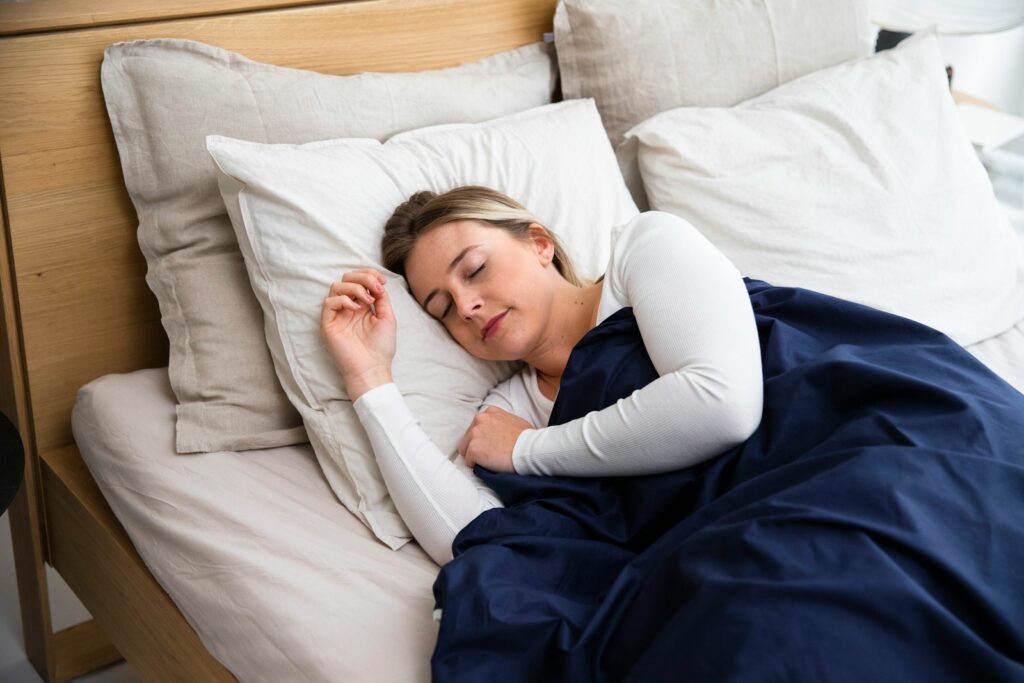
9. **Invest in the Right Mattress and Pillows**Your mattress and pillows are the unsung heroes of your sleep environment, yet they’re often overlooked or chosen without sufficient thought. It’s a common misconception that one size fits all, but the reality is that the quality and suitability of your sleep surface dramatically impact your comfort and, consequently, your sleep quality. Investing wisely here isn’t a luxury; it’s a fundamental step toward better rest.
Keith Cushner, general manager of Tuck, emphasizes that a mattress’s support is paramount. When it’s time to replace your mattress—which he suggests doing every seven to eight years—you need to consider several personal factors. Your height, weight, body type, and preferred sleep position should all guide your choice. For instance, if you weigh over 200 pounds, Cushner recommends opting for a mattress with higher density support foam or lower-gaged coils to provide adequate lift and support.
It’s also crucial to give any new mattress a proper trial run. Cushner advises that you should spend at least 30 days with a new bed. This period allows your body to adjust to the new support system and for the mattress itself to “break in” a bit, ensuring it conforms to your unique shape and provides optimal comfort for long-term sleep success.
While mattresses grab most of the attention, pillows are equally vital but frequently treated as an afterthought. Michelle Fishberg, co-founder of Slumbr, points out that people often spend hundreds on a mattress but neglect their pillows. Old or poor-quality pillows lose their support, leading to neck pain and discomfort that can disrupt sleep. Furthermore, pillows accumulate dust mites, fungi, dirt, and oils over time, potentially exacerbating allergies and affecting breathing during the night.
Therefore, when choosing pillows, look for those with high-quality fill that can be easily washed or cleaned. The National Sleep Foundation reinforces this, recommending comfortable and supportive mattresses and pillows as essential for a good night’s sleep. By making informed choices about these crucial components, you’re directly influencing the quality and quantity of your rest, creating a truly supportive foundation for restorative slumber.
Read more about: Conquering the Cold: 15 Top-Tier Camping Gear Essentials Rigorously Tested for Extreme Climates
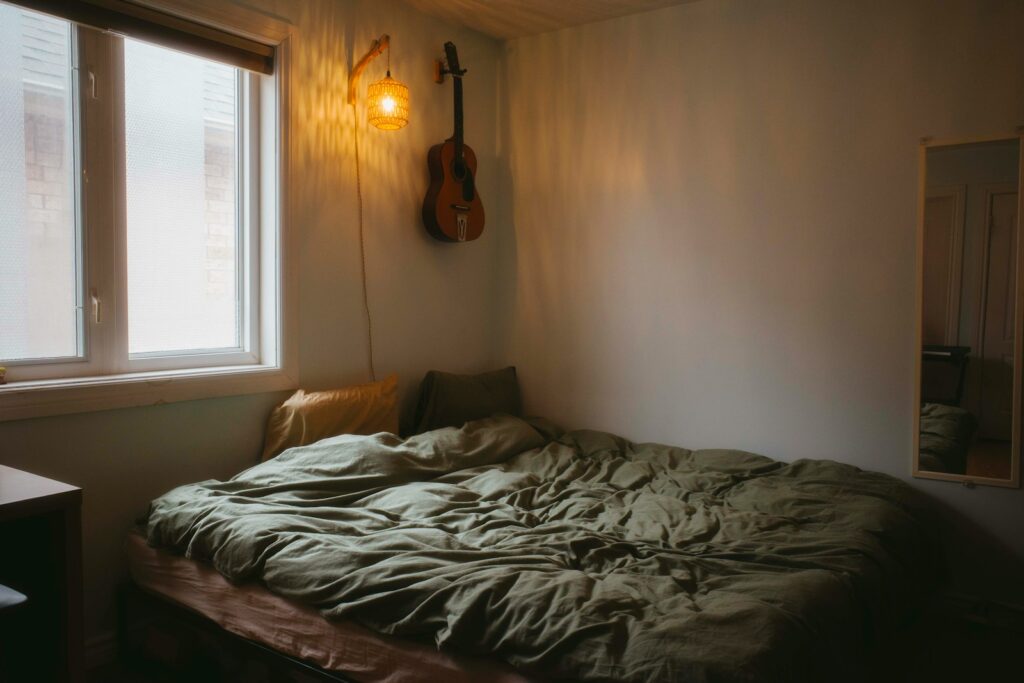
10. **Organize Your Bedroom Strategically**Creating a truly restful sleep environment extends beyond just a comfortable mattress; the strategic organization of your bedroom also plays a vital role. How your furniture, particularly your bed, is arranged can have a subtle yet profound impact on your sense of security and relaxation, directly influencing your ability to fall and stay asleep.
Beth Steflik, a Feng Shui consultant and teacher, offers practical guidance on this. She recommends positioning your bed a comfortable distance from the bedroom door. The goal is to allow you to see who or what is coming through the door without being in its direct path. This strategic placement fosters a sense of safety and control, reducing subconscious anxieties.
This seemingly simple adjustment has a powerful psychological benefit. Steflik explains that such placement provides the body with much-needed relief from the activity associated with the door. This, in turn, helps to calm the amygdala, which is the part of the brain responsible for the “fight-or-flight” response. By quieting this primal alarm system, you create a more tranquil space, making it easier for your mind and body to relax and prepare for deep sleep.
By taking a moment to assess and potentially re-arrange your bedroom layout, you’re not just tidying up; you’re actively cultivating an environment that promotes psychological comfort and reduces potential subconscious stressors. A strategically organized bedroom becomes a true sanctuary, helping you disconnect from daily pressures and embrace peaceful rest.
Read more about: Unlock A-List Living: 15 Budget-Friendly Decor Secrets to Style Your Home Like a Celebrity for Under $1000
11. **Hide Your Alarm Clock**Many of us have experienced that unsettling feeling of staring at the clock in the middle of the night, watching minutes tick by, and calculating how few hours of sleep are left. This common habit, while seemingly harmless, can actually escalate anxiety and make it even harder to drift off. It’s time to break free from the tyranny of the bedside clock.
Jonathan Alpert, a psychotherapist based in New York City, offers a straightforward yet highly effective solution: set your alarm, and then simply turn it away from you or place it out of sight. His reasoning is elegantly simple: “Have confidence that it will sound when it is supposed to. Looking at the time only increases anxiety about going to sleep and getting enough of it.” This small action can yield big results in reducing pre-sleep worries.
By removing the visual reminder of time, you eliminate a significant source of sleep-related stress. You give yourself permission to stop obsessing over the exact number of hours you’re getting, shifting your focus from performance anxiety to simply allowing your body to rest. This act of trust can be incredibly liberating for your mind.
It’s a simple, actionable tip that requires minimal effort but offers substantial benefits for your mental state as you prepare for sleep. Hiding your alarm clock allows you to disengage from the pressure of time, fostering a calmer, more serene mindset conducive to falling asleep naturally and waking up feeling more refreshed.
Read more about: Fortifying the Sanctuary: 11 Key Features of Keanu Reeves’s Hollywood Hills Home and Its Protection from Intruders

12. **Take Some Deep Breaths**In our fast-paced lives, stress is an inevitable companion, and it often manifests as a racing mind when we try to sleep. When you’re stressed, your breathing naturally speeds up and becomes shallower, keeping your body in a state of heightened alert. Learning to harness the power of your breath can be an incredibly effective, medication-free way to calm your nervous system and invite sleep.
Chris Jordan, director of exercise physiology at Johnson & Johnson’s Human Performance Institute, advises conscious breathing as a potent stress-reducer. He suggests practicing slow, deep abdominal breathing before heading to bed. This technique helps to slow your heart rate, relax your muscles, and shift your body into a parasympathetic (rest and digest) state. Moreover, Jordan notes that this practice is equally beneficial if you wake up unexpectedly in the middle of the night, providing a tool to gently guide you back to sleep.
Deep breathing exercises are a widely recognized relaxation technique, powerful enough to distract your mind from anxious thoughts and facilitate the transition to sleep. One popular and highly effective method is the 4-7-8 breathing exercise. To perform it, you breathe in quietly through your nose for 4 counts, hold your breath for a count of 7, and then exhale completely through your mouth with a “whoosh” sound for 8 counts. This rhythmic pattern is profoundly relaxing.
These techniques don’t require special equipment or an hour-long routine. They are simple, accessible ways to interrupt racing thoughts and ease your entire system toward rest. With consistent practice, deep breathing can become a powerful tool in your sleep arsenal, allowing your brain to gently focus on a calming rhythm rather than internal chatter, paving the way for profound sleep.
Read more about: Navigating the Final Hours: Key Symptoms and Changes to Expect 24-48 Hours Before Death

13. **Keep a Journal**One of the most persistent enemies of sleep is a mind cluttered with worries, to-do lists, and unresolved thoughts from the day. If you find yourself lying awake, mentally replaying conversations or planning for tomorrow, a simple journal could be your secret weapon for a peaceful night. It’s about giving those thoughts a designated place to live, freeing your mind from the burden of remembering them.
Shanon Makekau, MD, medical director of the Kaiser Permanente sleep lab in Hawaii, wholeheartedly endorses this practice. She recommends using a journal to “free your mind of persistent worries by jotting down your stresses or what you forgot to do that day.” This isn’t just a nostalgic throwback to teenage diaries; it’s a strategic mental decluttering technique that has significant benefits for sleep.
The act of writing down your thoughts, whether it’s itemizing tasks for the next day or simply offloading emotional burdens, serves a crucial purpose: it allows you to consciously “let go for the night.” By committing these thoughts to paper, you reassure your brain that they are captured and won’t be forgotten, enabling you to step away from them and embrace rest. You give yourself permission to shut down the mental planning and worrying.
This simple habit provides an excellent outlet for managing the cognitive load that often keeps us awake. By dumping your worries and responsibilities onto paper before bed, you create a mental clear space, making it far easier for your mind to unwind and transition into a state of calm, setting the stage for deep, uninterrupted sleep.
Read more about: Mel Taub: A Deeper Look at the Ingenious Mind Behind The Times’s Pun-Loving Puzzles

14. **Kick the Kitty Out**This might be a tough pill to swallow for many pet owners, but if you’re serious about optimizing your sleep without medication, you might need to reconsider your furry friend’s nighttime sleeping arrangements. As much as we adore our pets, their presence in the bedroom can inadvertently become a significant source of sleep disruption, turning your peaceful sanctuary into a zone of intermittent awakenings.
Marra Francis, MD, medical director of EverlyWell, succinctly states the core principle: your bedroom should be peaceful. The reality, as any pet owner knows, is that adorable as they are, animals are not always silent or still sleepers. Their movements, rustling, purring, scratching, or even just shifting their weight can create enough noise and disturbance to pull you out of critical sleep stages, even if you don’t fully wake up.
Environmental noises, whether from traffic or a beloved pet, are well-documented culprits for impacting sleep quality, making it harder to fall asleep and causing awakenings throughout the night. Even if you think you’re sleeping soundly with your pet, subtle disturbances can prevent you from achieving the deep, restorative sleep your body truly needs, leaving you feeling less refreshed in the morning.
Making the difficult decision to encourage your pet to sleep in another room can be a game-changer for your sleep health. While it might take some adjustment for both you and your furry companion, prioritizing a truly peaceful and uninterrupted sleep environment is a direct investment in your overall well-being. Your quest for better sleep might just mean loving your pet from a slight distance during the night.
Read more about: Get Ready to Rewind: These 12 ’80s Icons Dominated Action and the Box Office Like No Other!
Achieving truly restorative sleep without relying on medication is not just a dream; it’s an achievable goal within your reach. By systematically implementing these practical, expert-backed strategies, you’re not just making minor adjustments; you’re fundamentally reprogramming your body’s natural sleep mechanisms. From creating a serene bedroom sanctuary to mastering mindful relaxation and optimizing your daily habits, each step empowers you to reclaim your nights and experience the profound benefits of deep, natural sleep. Remember, persistence is key, and every small change builds towards a future where restful slumber is no longer a luxury, but a consistent, rejuvenating part of your life. Your journey to better sleep starts now—embrace these tools and wake up to a brighter, more energized you.



